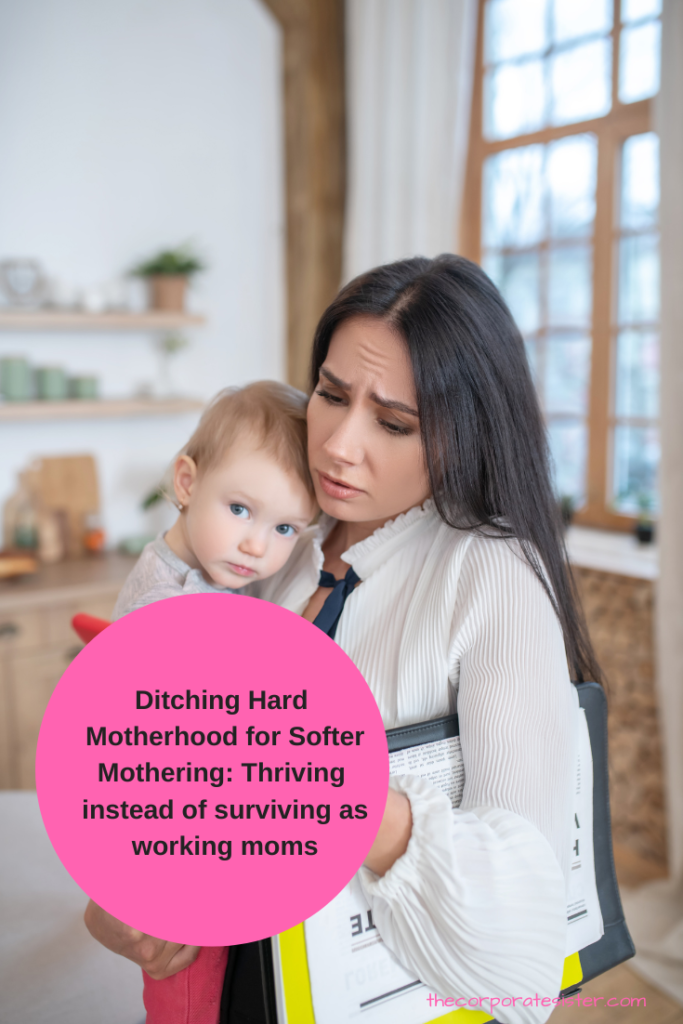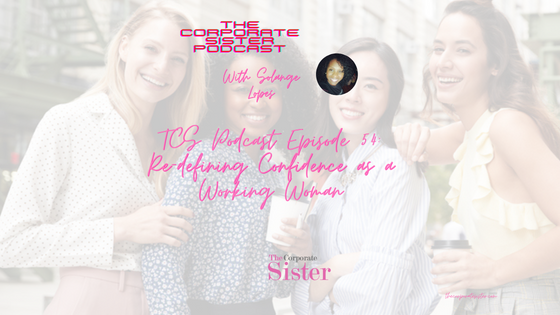Motherhood is beautiful. Yet, for many working mothers, especially in the US, especially in the past few years peppered with global pandemics, political and economic woes, motherhood has been “hard”. Hard is not often a word that we want to associate with being a mother, at least not one we dare to speak out loud when it comes to mothering. Yet, it certainly is the reality for many, one we soften with cute Instagram videos and funny stories, but a reality nevertheless. As many women after the COVID pandemic especially are turning to a “softer” approach to life and work, they’re also turning to a “softer” kind of motherhood. One that seeks to relieve the pressures of modern motherhood, allowing women to mother more lightly, more happily, more authentically…
I remember having a conversation with a fellow mom at my kids’ school. She laughingly was recounting how one of her daughters had told her on the ride to school one morning, that she did not want to be a mother when she’d grow up. When asked why, the young girl responded: “ Because it is so hard…” That made me think about all the times my own children may have thought the same thing. All the times our kids, nieces, or nephews look at us , between drop-offs, pick-ups, after-school activities and overflowing laundry baskets, and vow not to have children of their own, because…it looks so hard. And this is considering that most of us make it look easier than it actually is…

Many women are hitting walls of exhaustion and burnout, and bravely acknowledging it, as New Zealand’s ex-prime minister Jacinda Ardern did by stepping down earlier this year. As they do so, they are also sending the signal that things cannot keep going as they have been. Even as the world needs increased gender equity, diversity and inclusion, what it doesn’t need are mothers too exhausted to fulfill their potential in and outside of the home. Yet, with companies reneging on work-life balance measures and slowing down their diversity efforts, this is also signaling an urgent need to step back, stop glorifying the “hard” path to working motherhood, and instead re-imagining a softer way.
Often, when we hear of taking a “softer” approach, we may be tempted to think the latter would be less effective. In a society focused on over-performance at the expense of effectiveness, we’ve unfortunately come to equate “hard” with “effective”, or even “worthy”. Yet, the opposite couldn’t be truer. When it comes to motherhood, “hard” erodes the foundation of healthy mothering. Hard motherhood is motherhood that lacks flexibility, motherhood that barely survives rather than thrives, motherhood that is not full or complete, but only a shadow of its true potential. When mothers are submitted to unbearable pressure to perform, produce and deliver in the midst of a blatant lack of social, economic and political support, they are not set up for purpose, fulfillment or success. On the very contrary, they are set up for failure. And when mothers are set up for failure, families, communities and entire societies are set up for failure.
So what are we to do when ditching hard motherhood for softer mothering? In our modern society focused on productivity and results, it’s a tall order. Yet, it’s a change that can occur gradually starting with a few underrated, yet oh so effective principles:
- Changing our minds about what it means to be a working mother
It all starts with mindset. For many, if not most working moms, motherhood has become an endless performance. From the wee hours of morning, to late night, they’re performing and giving of themselves without so much as a respite. The tiredness, the exhaustion, even the resentment have become a badge of honor, and the source of many acclaimed social media memes. If you’re a working mom, you must be tired. If you’re a working mom, you must not have time for self-care. If you’re a working mom, you must deny yourself, day in and day out. I remember an acquaintance telling me when my kids were still babies, that I did not look like a working mom because I was too well-put together. So does looking disheveled and piling on the under-eye concealers otherwise qualify us to be valid, worthy working mothers? Nope.
This journey towards softer motherhood begins with a changed mindset around what it means to be a working mom. It means redefining working motherhood in terms of better work-life integration, increased fulfillment and purpose. No, we don’t have to look like we’re on the brink of burnout to be approved as good mothers.
- Reframe our careers and lives
The next step is to reframe our careers and lives around this mindset of fulfillment, purpose and fullness on our own terms. What are our non-negotiables? How do we take better care of ourselves in order to take better care of others? What can we take off of our plates rather than adding in? Where, and how can we get the support we need? These are a few questions to begin and continue the conversation.
Reframing our careers and lives is a matter of re-envisioning what a sustainable schedule looks like, from work obligations to kids’ activities. It is creating margins and boundaries in otherwise impossible timetables. Sometimes, it may be a matter of getting rid of the entire timetable altogether.
- Taking back our power
Last but not least, softer mothering is about taking back our power to live fuller, more authentic lives that do not reflect a fraction of our potential, but as close to its entirety as possible. It’s about reclaiming the time that is so freely given away and under-estimated, and requesting the infrastructures and support needed, whether it’s childcare, flexibility or equity in the home. Finally, it’s about getting rid of the creeping, generational, overwhelming fear that keeps us from prioritizing our needs, and regaining the confidence to be the mothers we were created to be.
At the end of the day, motherhood was not supposed to be hard. Not this kind of societally-imposed, articificially-made “hard”. Is it bound to be challenging? Yes. Is it supposed to be easy? No. But this hard shell of modern motherhood that seems to be offered on the platter of “having (and doing) it all”, is not it. Rather, re-imagining a softer, effective, and sustainable approach to modern mothering is a better path to creating and sustaining societies that can thrive, and not just survive.
With gratitude,
The Corporate Sis







